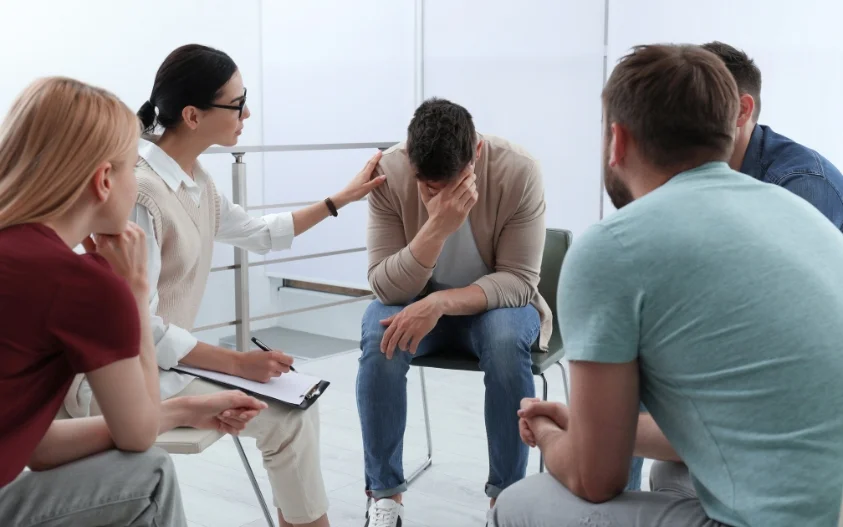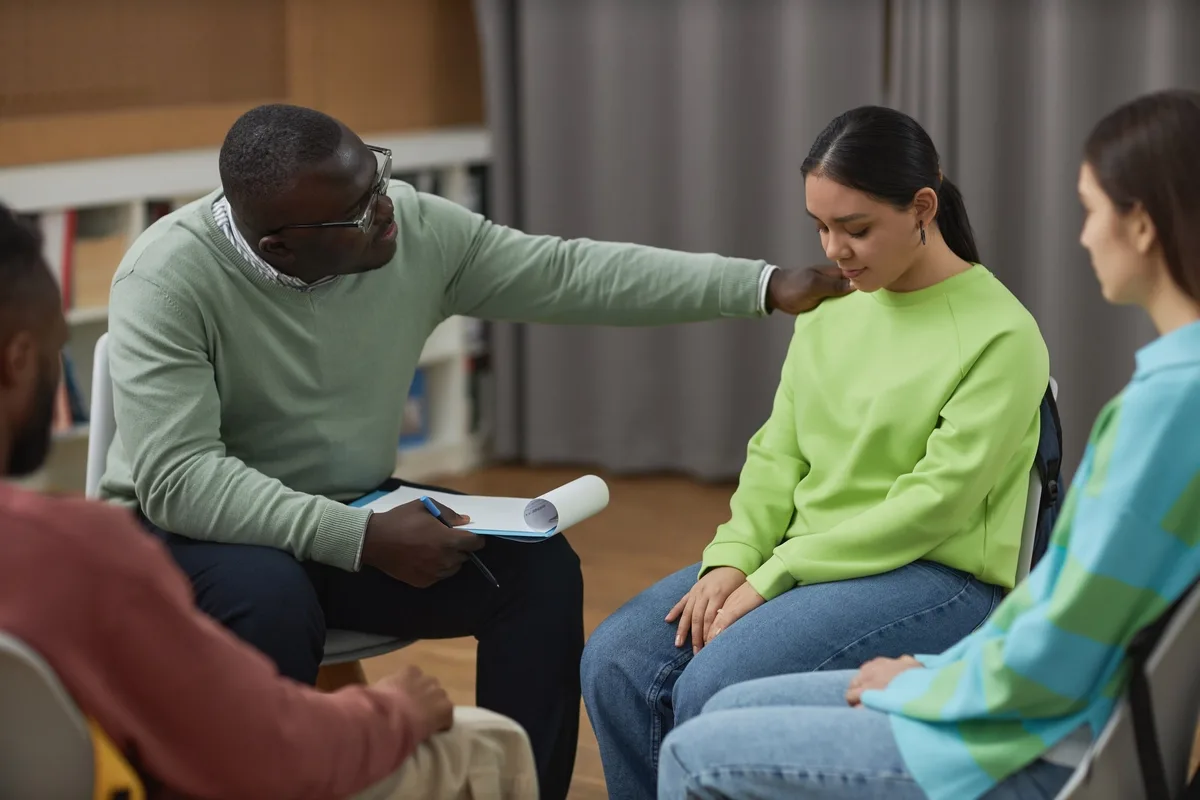24/7 Helpline:
(866) 899-221924/7 Helpline:
(866) 899-2219
Learn more about PTSD Rehab centers in Marshall County

Other Insurance Options

Group Health Incorporated

Magellan

Health Partners

Holman Group

Multiplan

UMR
Beacon

Choice Care Network

Health Net

Aetna

Lucent

Medical Mutual of Ohio

Sliding scale payment assistance

American Behavioral

Premera

CareFirst

Amerigroup

Health Choice

MVP Healthcare

Private insurance














AA – Alcoholics Anonymous
AA – Alcoholics Anonymous is a private rehab located in Gilbertsville, Kentucky. AA – Alcoholics Ano...






































